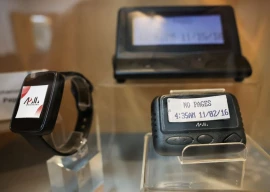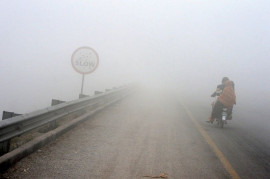
The donors were taken into custody after being questioned by investigators probing the racket at the upscale Apollo Hospital which was revealed late last week, a senior officer told AFP.
Police say a criminal gang lured poor people to sell their kidneys for some INR300,000 ($4,500) before selling on the organs for huge profits to those in need.
The gang used forged documents to pretend that the donors were relatives of transplant recipients in order to undergo the operations, police said.
"We have arrested three donors including a woman. This takes the total number of people arrested to eight," said New Delhi deputy commissioner MS Randhawa.
Indian father plans to sell kidney to save obese children
"Investigations continue... we will question the recipients also and based on the outcome we will take action against them. Some doctors will also be questioned," he told AFP.
Last Thursday police raided the hospital in the capital where two suspects worked as assistants to a senior nephrologist and made three arrests.
Another two were arrested over the weekend.
Apollo has denied any role in the scam, saying it has been a "victim of a well-orchestrated operation to cheat patients and the hospital".
The commercial trade of organs is illegal in India and transplant donations to non-relatives must be approved by a special committee.
Indian squash player backtracks on kidney sale threat
Millions of Indians suffer from kidney disease, mostly because of high rates of diabetes.
But a chronic shortage of organs available for transplant has fuelled a black market.
"India has a demand of more than 500,000 organs every year. But we get around 3,000 cadaver organ donations," said Sunayana Singh, the chief executive of the Organ Receiving and Giving Awareness Network (ORGAN).
"Patients who don't get organs through legal donations look for options and the only option is illegal donors," she told AFP.
"The only solution is to create public awareness."
















1734778885-0/Untitled-(10)1734778885-0-270x192.webp)






COMMENTS
Comments are moderated and generally will be posted if they are on-topic and not abusive.
For more information, please see our Comments FAQ